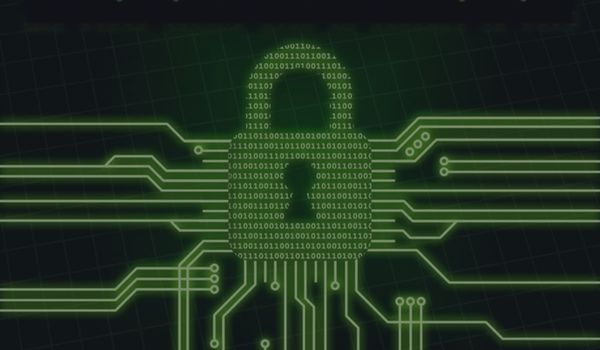The hefty expenses of a data breach or malicious software assault are avoided by small firms with the help of cyber liability insurance, often known as cyber security insurance. It pays for costs like warning customers, keeping an eye on their credit, paying for lawyers, and paying penalties.
Cybersecurity Insurance Policy for Small Businesses

Cybersecurity risks have grown in importance for enterprises of all sizes in the modern digital era. Due to their low resources and lack of cybersecurity knowledge, small firms are particularly susceptible to cyber-attacks. Small companies may protect themselves from the financial damages brought on by cyberattacks and data breaches by purchasing cybersecurity insurance.
The costs connected with a cyber-attack or data breach, such as legal fees, public relations costs, and costs linked to alerting impacted consumers, are often covered by a cybersecurity insurance policy for small enterprises. The insurance plan could also cover expenses for repairing broken equipment, replacing lost revenue due to a cyber-attack, and recovering lost or stolen data.
Small businesses are particularly susceptible to cyber-attacks if they keep sensitive information like customer information, credit card information, or medical records. Hackers may get access to this data and exploit it for illegal activities like credit card fraud or identity theft. Small enterprises can guard themselves against the monetary damages linked to such actions with the use of cybersecurity insurance coverage.
A cybersecurity insurance policy can give access to services that can aid small firms in preventing cyberattacks in addition to offering financial protection. Numerous insurance providers provide risk evaluations and other tools that may be used by small firms to find weak points in their networks and systems. These tools can assist small businesses in taking proactive steps to thwart cyberattacks and safeguard their private information.
To better manage their cybersecurity risks, small firms can think about collaborating with an established cybersecurity company. A cybersecurity company may aid with incident response and data recovery in the case of a cyberattack, as well as continuous monitoring and threat detection services. Working with a cybersecurity company helps guarantee that small companies are taking all essential procedures to secure their data and may help them keep ahead of new threats.
Owners of small businesses should carefully evaluate the policy terms and coverage restrictions before deciding on a cybersecurity insurance policy to be sure they are getting the protection they require. Additionally, it is crucial to engage with an insurance provider that is knowledgeable about cybersecurity and aware of the particular threats posed to small businesses.
Cybersecurity insurance coverage can offer important defense against cyber-attacks, but it shouldn’t be the sole one. By putting best practices into effect, small companies may strengthen their cybersecurity posture. Some of these best practices include employing strong passwords, upgrading software often, and limiting access to critical information. Small companies can better guard themselves against the financial and reputational harm brought on by cyberattacks by combining cybersecurity insurance coverage with preventative cybersecurity measures.
Small companies are increasingly concerned about cybersecurity dangers. Cybersecurity insurance coverage may offer important protection against the monetary damages brought on by cyber-attacks and data breaches. Small firms should carefully evaluate their cybersecurity risks and take proactive steps to thwart cyber-attacks, such as collaborating with an established cybersecurity company and putting best practices into place. Small companies may safeguard themselves from the financial and reputational harm brought on by cyberattacks by combining cybersecurity insurance coverage with proactive cybersecurity measures.
Why is cyber insurance necessary for small businesses?

Data breaches and cyberattacks are costly and becoming more frequent. Small firms frequently have poor cybersecurity, which attracts criminals.
A cyberattack may force you out of business in addition to being a nuisance. In fact, six months after a hack, 60% of small enterprises fail.
Your company may recover from financial damages brought on by cyberattacks and data breaches with the aid of cyber insurance coverage. It can be used to cover high-cost expenditures like credit monitoring, legal fees, penalties, and fines.
What is covered by cyber liability insurance?

Data breaches and cyberattack-related expenses, such as the cost of retrieving crucial data and retaining legal counsel, are covered by cyber security insurance.
First-party coverage and third-party coverage are the two categories of cyber liability insurance.
For protection against their own cyber risks, the majority of businesses require first-party cyber liability insurance, particularly if they deal with personally identifiable information (PII) for clients.
Third-party cyber liability insurance is necessary for businesses that are liable for the cybersecurity of their clients in order to offer legal defense against client lawsuits.
What is the definition of first-party cyber liability insurance?

First-party cyber liability insurance, often known as data breach insurance, pays for expenses connected to a cyberattack or data breach that directly harms your company.
Your general liability insurance frequently allows you to include this coverage. It is advised for professionals that gather sensitive data, such as client credit card data.
First-party cyber liability insurance can specifically aid with covering:
Ransoms paid online
Cyber liability insurance will assist with payments to satisfy cyber extortion claims if a hacker gets your confidential information about your business or its personnel and holds them for ransom.
Business disruption costs
Cyber liability insurance can assist in covering business interruption costs, such as the price of hiring extra people or renting equipment when regular activities must be suspended to conduct a cyber incident response. This includes paying for outside assistance, including contracting a public relations or crisis management team.
Costs of breach responses
When a firm is affected by a data breach, state regulations often demand a response. Cyber insurance assists in defraying expenses for Payment Card Industry (PCI) compliance fines, customer notifications, consumer credit, and fraud monitoring services, as well as the engagement of a digital forensic specialist to investigate the breach.
What is covered under third-party cyber insurance?

When a client files a lawsuit against your business for failing to stop a breach or cyberattack at their organization, third-party coverage gives liability protection and helps defray the expense of the legal action. For technological companies who advise clients on software or are in charge of network security, this insurance is advised.
Technology errors and omissions insurance, often known as tech E&O, is a type of policy that combines your errors and omissions coverage with third-party cyber liability coverage.
Third-party cyber liability insurance can specifically aid in covering:
Costs of legal defense
Cyber liability insurance may assist pay attorney’s fees and other court costs if a client sues your company for failing to stop a data breach at their company.
Settlements
You and the client may elect to settle out of court with settlements that would meet the losses they suffered if your company is sued by a customer who experiences a data breach.
judgments issued by the court
You can be required by law to pay damages from any judgments in the litigation if a customer claims you of being accountable for a data breach at their organization.
How to safeguard your company against cyberattacks?

Cyberattacks may be expensive and difficult to stop. The average cost of a data breach was estimated as $3.86 million in research conducted by IBM and the Ponemon Institute. It took, on average, 280 days to find and stop a breach.
An insurance plan covering cyber liability can assist with:
- Mandatory alerting of the parties involved
- examining and resolving security vulnerabilities
- Services for impacted clients’ credit monitoring for several years
- Business opportunity lost
To receive free cyber liability insurance estimates that are tailored to your small business’s needs, simply fill out our simple online insurance application.
How much does insurance against cyber liability cost?

Costs for cyber liability insurance depend on a number of variables, including:
- Amount of private information handled
- Your sector
- Limits on coverage
- Number of personnel
How much cyber liability insurance your small business needs will be largely influenced by all of these variables.
Who is in need of cyber insurance?

Any business that engages in cybersecurity, works in a cloud environment or handles sensitive consumer personal information, such as credit card data, should have cyber liability insurance, often known as cyber security insurance.
Although any company may have a data breach or cyberattack, hackers frequently target a few particular sectors, including:
IT specialists
When a customer sues a technology company for their inability to stop a data breach or cyberattack at their company, their legal expenses are covered by their cyber liability insurance.
For instance, if an IT consultant neglects to safeguard data for a small healthcare firm on Amazon Web Services, and cyberattack results in the disclosure of hundreds of Social Security numbers and email addresses belonging to the company’s clients, the healthcare company may hold the consultant liable and bring a lawsuit.
The consultant’s cyber liability insurance helps cover the expense of the ultimate settlement and the court defense.
Retailers
For retail organizations, cyber liability insurance aids in recovery after a hack exposed your customers’ personal information. It is advised for any business that deals with sensitive data, such as credit card numbers.
For instance, a harmful computer virus may be mistakenly opened by a worker at your retail business. The virus encrypts data that is essential to your company’s operations and requests payment to decrypt it.
Your cyber security insurance will pay you back for the ransom as well as the expense of hiring someone to investigate the attack’s origin.
Health care facilities
Healthcare businesses can benefit from having cyber liability insurance to aid with legal fees and provide vital resources like alerting customers or patients that their data was compromised, offering credit monitoring services to impacted clients, and running PR efforts to repair reputations.
For instance, a ransomware assault that affected up to 100,000 patients at a doctor’s clinic may require them to lock their patient billing and scheduling software while they look into the breach and try to limit additional harm.
While the facility reboots and upgrades security on its system, cyber liability insurance would pay for business interruption costs.
Suppliers of financial services
Financial professionals who have cyber liability insurance may be able to get resources to aid in recovery in the event of a cyberattack or data breach, as well as legal bills and other costs.
For instance, if a tax preparer requests that a customer submit a file containing private information online and that client data is lost or hacked, the aggrieved client may opt to take legal action against the tax preparer to recover costs.
By covering court costs and attorney fees, cyber liability insurance can safeguard your company from the financial burden of a data breach-related lawsuit.
Real estate agents and brokers
Cyber liability insurance for real estate agents may pay for the cost of defending themselves in court as well as offer tools to assist impacted clients in the event of a data breach.
For instance, if a real estate agent requests a customer’s social security number or credit card number for mortgage paperwork and that information is compromised during a cyberattack, the client may choose to sue the agent for the breach’s associated losses.
Attorney expenses, public relations efforts, client notification, and credit monitoring services are all covered by cyber insurance.
What exclusions apply to cyber liability insurance?

Although cyber liability insurance covers a wide range of data breach-related issues, there are certain coverage restrictions. For instance, it only covers lost data as a result of a deliberate cyberattack. Data lost as a result of a power loss is not covered.
Additional cyber liability insurance coverage exclusions include:
Errors and omissions
The expense of litigation resulting from errors or omissions is covered by professional liability insurance, often known as errors and omissions insurance (E&O). Lawsuit expenses resulting from professional carelessness are also covered by professional liability insurance.
Data loss due to unintentional harm
Data lost as a result of unintentional physical harm to a network or storage device is not covered by a cyber insurance policy, even though it is covered in the event of a software attack.
If a customer’s computer, hard drive, or other data storage equipment is accidentally damaged, your business owner’s policy’s (BOP) property damage coverage will now cover any data loss that results from such damage. This is known as electronic data liability coverage.
Natural disasters that cause data loss
You would require electronic data processing (EDP) insurance if you had a data loss due to a power outage, fire, or other natural catastrophes. This insurance protects against data loss in your electronic data processing equipment, such as computers and backup systems, and is often included in a business owner’s policy (BOP).
other typical inquiries regarding cyber insurance
How do online assaults take place?

Cyberattacks can occur when a company’s network security is out-of-date or when the staff is not trained or knowledgeable enough to see phishing scams, ransomware, and other cyberhacking warning signs.
A recent study found that 82% of ransomware attacks target small companies. Many ransomware groups are seeking to blackmail businesses that are both profitable enough to pay a higher ransom sum and small enough to facilitate simpler hacking efforts while also drawing less notice from the media and law authorities after the aftermath.
Cyber liability insurance may assist a firm in covering costs incurred as a result of a data breach or cyberattack event and in surviving the breach.
Find out more about defending your company against threats such as ransomware.
What are some instances of cyberattacks and data breaches?

A multi-billion dollar industry, cybercrime. Security companies have an uphill battle to keep one step ahead of hackers seeking for easy targets. Catastrophic data breaches can still happen despite robust security measures being in place.
Just a few examples of the types of cyber hazards that might result in significant liability or losses include phishing emails, malware, security breaches, network security concerns, and computer system failures.
This may have an effect on a company that provides financial planning services and keeps bank account information on file or even a company that creates gaming apps and gathers user profile data.
Where can I find out more about insurance against cyber liability?

Additional information about this coverage may be found in our commonly asked questions regarding cyber liability insurance.
You can speak with an Insureon agent if you have any more inquiries about coverage.
Final Words
In conclusion, the dangers that small firms face from cybersecurity attacks are enormous, and they are only becoming worse in the current digital era. Cybersecurity insurance coverage may assist small companies in securing themselves against the monetary damages brought on by cyber-attacks and data breaches, as well as giving them access to tools that can aid in preventing such assaults in the first place.
To combat cyberattacks, cybersecurity insurance coverage shouldn’t be the only line of protection. Small firms can also take proactive steps to strengthen their cybersecurity posture, such as collaborating with an established cybersecurity company and putting best practices like using secure passwords and staying up to current with software to use.
In general, small companies must be careful in guarding against cybersecurity risks, and cybersecurity insurance coverage may be a crucial component of that defense. Small companies may lower their risk of cyberattacks and guard themselves against the financial and reputational harm that these assaults can inflict by adopting a comprehensive strategy that incorporates both insurance and proactive cybersecurity measures.





Leave a Reply